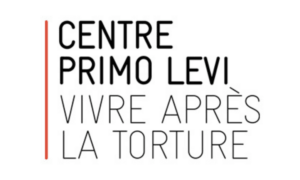Conduct a survey for national and international hikers in Jordan, Lebanon, and Palestine
1. Project details
1.1. Project presentation
Project: Emergence of the first trails network from the Mediterranean
Project location: France, Jordan, Lebanon, Palestine – Mediterranean region
Project partners: Palestinian Heritage Trail (PHT), Lebanon Mountain Trail Association (LMTA), Jordan Trail Association (JTA), AFRAT, Tétraktys
Project duration: 36 months: from June 1st, 2023, to May 31st, 2026
Project budget: 2 769 231€
Tétraktys is part of a consortium of associations implementing the project Emergence of the first trails network from the Mediterranean. The project was born with a view to creating a common tool at Euro-Mediterranean Regional level to address the challenges of managing, structuring, promoting, and animating long-distance hiking trails. It aims to promote the economic development of rural areas through hiking tourism.
Supported by Agence Française de Développement (AFD), the network brings together a consortium of 5 partners, representing 4 countries on the northern and southern shores of the Mediterranean.
1.2. Presentation of the consortium
AFRAT has been active for almost 60 years in the fields of training, regional development, and tourism, working with local authorities, institutions, and entrepreneurs, mainly in France but also internationally. A pioneering organization in the Vercors region for the development of rural tourism, the projects supported by AFRAT mainly affect rural and mountain areas and their inhabitants. Located at the heart of the Vercors Regional Nature Park, AFRAT provides expertise in capacity building, heritage enhancement and governance, itinerance and outdoor activities. The association has been able to export its know-how internationally by developing projects since 2004, by participating in the creation of Tétraktys nearly 30 years ago. In 2023, AFRAT also supported projects in Palestine, Armenia, and Burkina Faso.
Tétraktys is an NGO specialized in development based in the French Alps. For the last 24 years, the organization has been dedicated to sharing its expertise in rural development and cultural heritage preservation with communities all over the world. Today, Tétraktys is at the hub of a regional network of experts: elected officials and mountain communities, innovative businesses, tourism professionals, educational establishments and universities, institutions, and organizations.
Palestinian Heritage Trail is a long-distance cultural hiking route in Palestine. The trail is about 500 km long and extends from the village of Rummana northwest of Jenin to Beit Mirsim southwest of Hebron back to Artas in Bethlehem, in addition to the newly developed Jerusalem segment that starts in Eizariya through the Old City of Jerusalem towards the villages in the Northwest (Beit Surik to Beit Duqqo) (See map). The trail passes through more than 80 Palestinian cities, villages, and local communities where travelers can experience and enjoy the authentic Palestinian Hospitality. The Palestinian Heritage Trail is more than just a hiking trail. It is a means of meeting and making connections with local Palestinians and hikers from all over the world. You can explore Bedouin communities and experience the traditional Palestinian dishes, which is one of Palestine’s most fundamental traditions. The Trail does not only invite hikers to experience nature but also to change their perspectives by recognizing shared common values and creating friendships along the way.
The Jordan Trail Association (JTA) is a long-distance hiking trail in Jordan linking Um Qais in the north to Aqaba in the south. It provides 40 days of hiking over 675 kilometers of trails and passes through 75 villages. The trail crosses a large variety of landscapes: from the forested hills of the north, through the rugged wadis, the cliffs overlooking the Jordan Valley, the pink rock of Petra, the sandy deserts, and mountains of Wadi Rum, to the crystal-clear waters of the Red Sea. The Jordan Trail also runs through Jordan’s history and culture. The JTA model allows you to taste Jordan’s varied cuisines, meet the locals, and sleep in local homes. The trail also passes through the main historical sites of the region such as Um Qais, Jerash and Petra.
Established in 2007, the Lebanon Mountain Trail Association (LMTA) is a non-profit organization dedicated to:
– Maintaining and protecting the Lebanon Mountain Trail (LMT) and its side trails
– Promote the LMT as a destination for rural tourism and well-being
– Conserve the natural resources and protect the cultural heritage on the LMT
– Advance economic opportunities on the LMT through responsible tourism
– Encourage responsible behavior through targeted education, community mobilization & outreach
2. Consultancy
2.1. Background
On behalf of the consortium, Tétraktys will engage a consultant to conduct a survey, in Palestine, Jordan, and Lebanon, for national and international hikers.
The survey is expected to provide comprehensive information regarding the behavior and the habits of national and international hikers, with a focus on environmental protection, in the three countries mentioned above. It will help to design new tourism products and environmental and climate change awareness raising campaigns.
2.2. Scope of work
The survey will cover two scopes: 1- the habits and needs of national and international hikers in view of developing new tourism products with sources of stable tourist income; 2- the knowledge- and the expectations of hikers about environmental protection and climate change in view of implementing awareness campaign.
The consultant will be tasked with:
- Designing a comprehensive and relevant survey, based on hiking tourism and community-based tourism literature review and a deep analyze of the consortium needs.
- Conducting the survey to be disseminated in Palestine, Jordan, and Lebanon by the PHT, JTA and LMTA. This task includes developing an effective and efficient methodology to conduct the survey. This survey will target national and international hikers who had already hiked segments of Palestinian Heritage Trail, Jordan Trail, and Lebanon Mountain Trail. The consortium will be responsible for disseminating the surveys through their own network (service providers, through- hike, etc.).
- Ensuring high-quality data collection, data entry, and upload as well as conduct analysis of information. This task includes designing data collection tool(s).
- Working closely with the consortium team to ensure that all information and data are collected, documented, and collated in an accurate and timely manner.
- Providing recommendations on future actions based on the result survey.
2.3. Methodology
The methodology will be adapted depending on the country’s context. A different dissemination methodology for reaching local and international hikers should be developed in each country.
As an example, JTA and LMTA are organizing TRU hikes and Spring hikes. PHT can contact former hikers.
The consultancy will be composed of several phases:
Phase 1: Elaboration of a questionnaire and dissemination methodology, based on the consortium’s experience, needs and desk research.
- Lead an interview with the 5 organizations about the scope of work, the objectives of the survey and the process to disseminate the questionnaire.
- If possible, conduct a field visit.
- Conduct desk research: key topics, preliminary studies.
- Write and design questionnaires and methodology adapted to the country context.
Phase 2: Dissemination of the survey, in the 3 countries, by the consortium.
- Follow-up the dissemination of the questionnaire, in collaboration with the consortium.
- The consultant is responsible for sizing the survey in the three countries to assure the – representativeness of the results (At least 40 in each country). The data analysis will be gender-differentiated.
Phase 3: The collecting and the analysis of the data.
- Collect data and integrate the data from the printed questionnaires.
- Qualitative and quantitative analysis of the questionnaires.
- Provide recommendations on tourism products, with the aim of identifying sources of stable tourist income along the trails.
- Provide recommendations to help define priority activities to be implemented in terms of environmental protection and climate change along the trails.
The survey should contain the topics as follows:
- Socioeconomic and demographic profile (age, nationality, educational background,).
- Hiking habits (frequency, level, experiences, motivations, housings habits,…).
- Expectations and needs vis-à-vis their hiking practice (activities that most inspire him/her, activities that less inspire him/her,).
- Expectations and needs with regards to environmental protection and climate change.
2.4. Outputs
The following outputs are expected:
- A questionnaire in English, Arabic and French, in both format: PDF (to be printed) and online (a link to be disseminated).
- An analysis of the results, in English (a maximum of 50 pages).
- A synthesis of the analysis, in English and Arabic (a maximum of 2 pages) with graphic designs.
- A list of recommendations, in English (a maximum of 20 pages).
2.5. Scope of price proposal
The maximum budget for this consultancy is 15 000€ incl. tax.
2.6. Consultancy timeframe
The consultant(s) are expected to provide the results of their desk research, a first draft questionnaire and a methodology for dissemination within 1,5 months after the starting date.
The dissemination of the questionnaire will be done in Summer and Autumn 2024.
The online presentation should be done in December 2024.
The calendar and objectives for this consultancy might be modified depending on the crisis evolution in the areas targeted.
3. Applicant
Interested and eligible candidates should meet the following requirements:
Education:
- Master’s degree in tourism, sociology, sustainable development or environment preservation or related field and/or
- PHD in tourism, sustainable development, or economic development
Experience:
- At least 5 years of experience in the field of tourism, as a practitioner, academic or related functions.
- Strong knowledge of the tourism sector, with a focus on sustainable tourism, rural tourism, and hiking trails.
- Excellent knowledge of sustainable development and local development.
- Experience in working in one of the targeted countries (Palestine, Jordan, and Lebanon) context including culture, nature, politics and geography.
- Demonstrated capacity in conducting surveys and analyzing qualitative and quantitative data.
- Excellent conceptual and analytical skills.
- Strong knowledge of environmental and climate change challenges for the tourism sector
- Behavior theory
- Demonstrated reporting skills and ability in synthetizing and presenting analysis.
Language:
- Fluency in French and English (oral and writing skills)
- Fluency in Arabic is an asset.
4.Tender documents
The call for tender is composed as follows:
Terms of reference
Annex 1 – Tender procedures
Annex 2 – Technical application form
Annex 3 – Financial application form
Annex are available on request: elise.monge@tetraktys-ong.org and tom.darbon@tetraktys-ong.org
Applications must be submitted in English exclusively and sent, by email, to Madam Elise Monge, International Project Manager: elise.monge@tetraktys-ong.org.
Subject line of the email should read: “Request for proposal – Survey”.
The deadline for the submission of the application is on Avril 12 2024, 12am (CET).
Vous souhaitez déposer un appel d’offre ?
Déposez vos appels d'offres pour vos recherches de prestations visant à renforcer votre organisation, faciliter vos projets...
Déjà inscrit ?
L’ABC des prestataires
Plus de 50 prestataires référencés dans notre base !



![[Webinaire] Capitalisation FRIO - Gouvernance & Sociocratie - 27 mars à 17h webinaire-capitalisation-frio-gouvernance-sociocratie-27-mars-a-17h](https://www.coordinationsud.org/wp-content/uploads/LOGO-FRIO-mention-aspect-ratio-5-3-300x180.png.pagespeed.ce.RpwlZgDqTo.png)